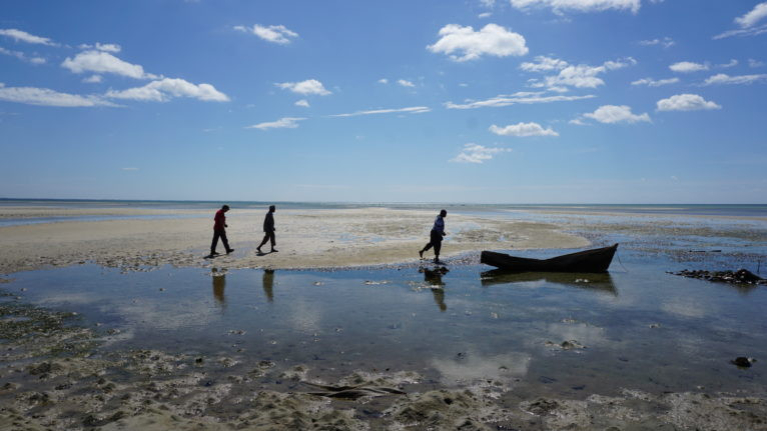Pandemic risk and the Equator Principles: New EPA guidance provides helpful recommendations but could go further

Ahead of the new version of the Equator Principles (EP4) coming into effect on October 1st and in the midst of the Covid-19 pandemic, the Equator Principles Association (EPA) has published guidance for Equator Principles Financial Institutions (EPFIs) on how to effectively implement the Equator Principles (EPs) during the Covid-19 pandemic. As part of our role at BankTrack as watchdog of the EPs we continue to analyse both the Principles themselves and the guidance provided by the EPA. Whilst we acknowledge that there are ongoing issues with the EPs and the implementation of them, we welcome the fact that the EPA is taking pandemic risk into account and providing guidance to both EPFIs and project sponsors on this issue.
The guidance provides a welcome and very detailed analysis of how the EPs can continue to be implemented during the current pandemic, whilst also indicating the need for pandemic risk management to extend beyond Covid-19 to potential future pandemics. It includes specific guidance for EPFIs and borrowers; external good practice sources, materials and checklists for both groups of actors; and recommendations for projects in different phases of development, both pre- and post- financial close. However, it could still go further in regards to broader pandemic risk management and the expansion of the concept of risk under the principles, as detailed below.
The guidance is explicit that “economic imperatives” should not “over-ride compliance requirements” and that “particular focus may need to be given to maintaining dialogue and oversight of any ramp-up activities” that happen as restrictions are relaxed. It highlights that ensuring compliance is of the utmost importance. This clear prioritization of environmental and social risk management is promising to see in the area of project finance.
In particular, we commend the EPA’s specific consideration of the risks to communities and affected stakeholders. The guidance recommends that project sponsors develop “a dedicated Covid-19 Community Response Plan (CCRP) addressing direct and indirect Covid-19 impacts” on project affected communities. Furthermore, it details specific actions project sponsors can take to conduct stakeholder engagement in situations where Covid-19 has made that process more difficult, such as engagement through local actors (women and youth leaders, local authorities, traditional leaders) and the implementation of additional training for Community Liaison Officers.
The guidance also notes that stakeholder engagement is especially important where projects may be perceived to be a significant route for disease spread. Whilst this is true, it should also be noted here that, where due diligence reveals a clear risk that a project will cause or worsen the spread of infection among communities, the project should not proceed until this risk is effectively addressed.
A topic which has regretfully been overlooked in the guidance is that of free, prior and informed consent (FPIC) of affected Indigenous peoples, covered under Principle 5 of the EPs. As a fundamental right of Indigenous peoples, FPIC cannot be deferred until after a project has begun construction. Guidance on creative ways to ensure FPIC processes can still be followed in a safe and rights-compatible way under lockdown restrictions would have been welcome as part of such a guidance document, and could help guard against the pandemic becoming a reason or pretext for projects that require FPIC proceeding without it.
Beyond Covid-19
The EPA has not ignored the fact that broader pandemic risk management needs to be included in EPFI due diligence processes going forward. The guidance states that project consultants’ scope of work must encompass assessment of both Covid-19-specific and general pandemic risks. It also notes that EPFIs “may wish to undertake periodic review of the Covid-19 response with regards to EPs compliance across its portfolio”, particularly high-risk projects, in order to identify lessons learned and areas for improvement, resulting in additional controls being generalized for future use. It notes that this could extend to general pandemic scenarios. We hope that this is something EPFIs do undertake, and look forward to seeing evidence of this recommendation being implemented.
However, the guidance is still limited in its consideration of pandemic risk management. Broader pandemic risk management considerations should now, by default, form part of any environmental, human rights and social due diligence. Additionally, the requirement for borrowers or project sponsors to develop a broad pandemic risk management plan should be included in all loan agreements. It is no longer acceptable for EPFIs or project sponsors to ignore the fact that pandemics pose a significant risk to the projects they finance or manage, and that projects themselves can exacerbate the risks of future pandemics emerging and spreading.
Expanding the concept of risk
It is becoming increasingly clear that future pandemics are likely, and EPFIs and project sponsors should be proactive, rather than reactive, in dealing with such situations. A recent UN report has shown that the unsustainable utilization of natural resources, which is accelerated by land use change and extractive industries, is among likely driving causes of pandemics such as Covid-19. Projects such as fossil fuel extraction, large infrastructure and power generation projects that impact wildlife and destroy ecosystems – all of which have been financed under the Equator Principles – are raising the risks of further pandemics and zoonotic diseases.
For instance, the Mozambique LNG project is financed under the Equator Principles, despite both the climate and pandemic risks of the project. Not only will the project emit 12.9 million tons of CO2 per year from 2022 onwards, it also puts unique ecosystems and endangered species at great risk of complete destruction. The project is located on the northern coast of Mozambique, where mangrove forests, coral reefs and seagrass beds are important, biodiverse and very vulnerable habitats. In addition, the project also threatens the Quirimbas National Park, a UNESCO Biosphere Reserve.
The East African Crude Oil Pipeline, also set to be financed under the Equator Principles, has similar climate and pandemic associated risks. The project will directly impact the Murchison Falls National Park, posing a serious threat to biodiversity and rare and endangered species. It will also pose far-reaching and extensive environmental threats to the East African region, including nearly 2,000 square kilometres of protected wildlife habitats, 500 square kilometres of important wildlife corridors, and two important Ecologically or Biologically Significant Marine Areas (EBSAs). At the same time, the oil that pipeline will carry is likely to result in CO2 emissions of over 33 million tons each year.
Both of these projects threaten the destruction of important biodiverse ecosystems which could increase the risk of future pandemics by breaking down the natural buffer between humans and animals resulting in more intense and frequent interaction between the two. At the same time, the projects also pose significant climate risks. Cases like this lead us to believe that the current concept of risk used in the EPs is inadequate and needs to be expanded. The current ‘comprehensive risk management’ concept which is at the core of the Principles (both EP3 and EP4) only focuses on managing risks posed by external circumstances to a project. This should be expanded so that it also encompasses all risks that a project will pose to communities, nature and climate, both locally and globally.
This expanded concept of risk should include the potential pandemic risks that a project may pose, for example where it will impact upon biodiversity and natural ecosystems. In the same way that the EPs cannot meet their stated objective of adequately managing risk whilst allowing the financing of projects which significantly increase the risk of climate change, they also cannot perform their function whilst allowing projects which increase the risk of future pandemics to be financed ‘under Equator’. Shifting from a limited to a comprehensive understanding of risk under the EPs would make it clear that projects which pose significant climate and pandemic risks, which cannot be managed or mitigated, should not be financed under the EPs.


